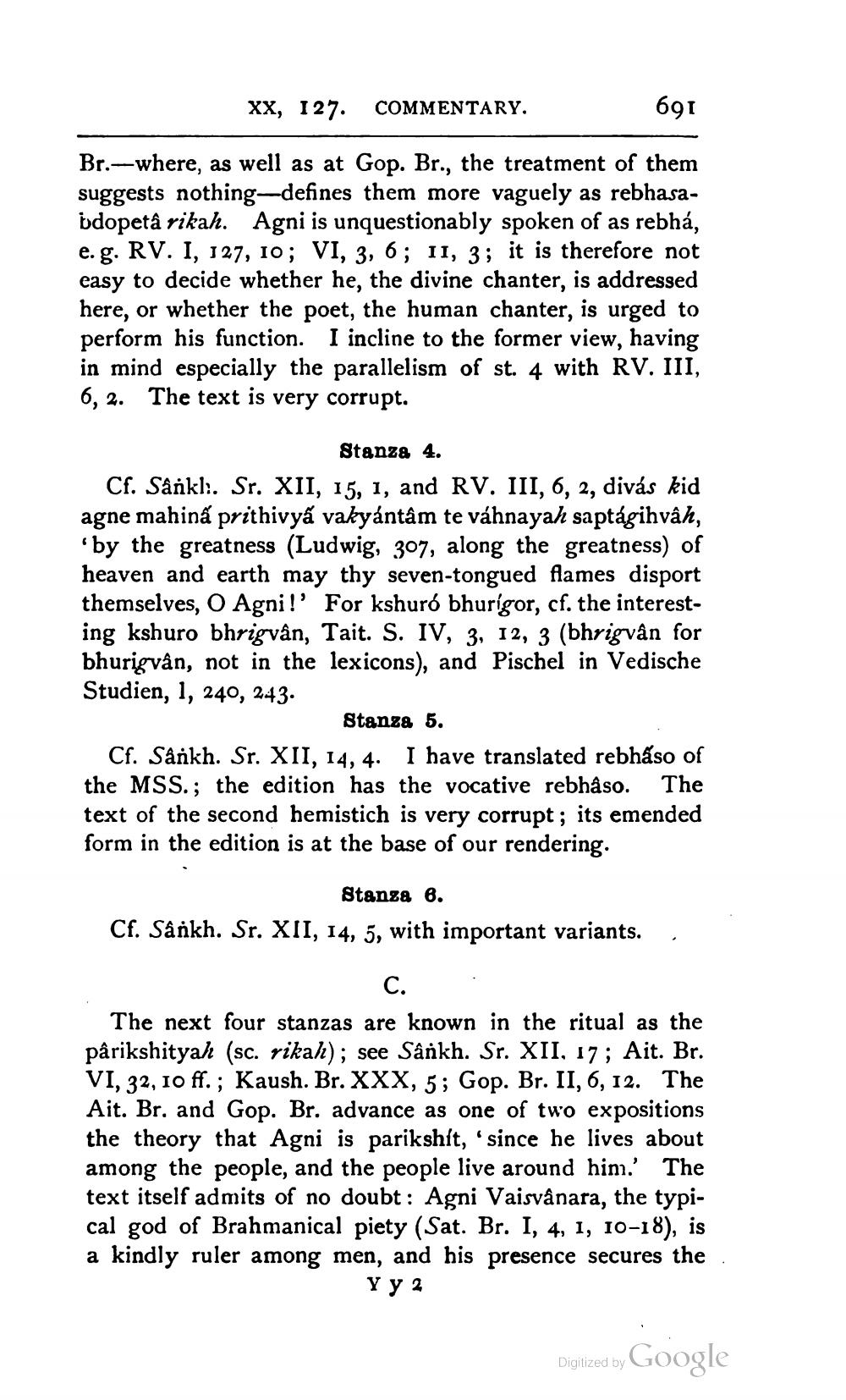________________
xx, 127. COMMENTARY.
691
Br.-where, as well as at Gop. Br., the treatment of them suggests nothing_defines them more vaguely as rebhasabdopeta rikah. Agni is unquestionably spoken of as rebhá, e. g. RV. I, 127, 10; VI, 3, 6; 11, 3; it is therefore not easy to decide whether he, the divine chanter, is addressed here, or whether the poet, the human chanter, is urged to perform his function. I incline to the former view, having in mind especially the parallelism of st. 4 with RV. III, 6, 2. The text is very corrupt.
Stanza 4. Cf. Sänkl. Sr. XII, 15, 1, and RV. III, 6, 2, divás kid agne mahina prithivyá vakyántâm te váhnayah saptágihvâh, by the greatness (Ludwig, 307, along the greatness) of heaven and earth may thy seven-tongued flames disport themselves, O Agni!' For kshuró bhurigor, cf. the interesting kshuro bhrigvân, Tait. S. IV, 3, 12, 3 (bhrigvân for bhurigvân, not in the lexicons), and Pischel in Vedische Studien, 1, 240, 243.
Stanza 5. Cf. Sankh. Sr. XII, 14, 4. I have translated rebhấso of the MSS.; the edition has the vocative rebhåso. The text of the second hemistich is very corrupt; its emended form in the edition is at the base of our rendering.
Stanza 6.
Cf. Sankh. Sr. XII, 14, 5, with important variants. ,
C. The next four stanzas are known in the ritual as the pârikshityah (sc. rikal); see Sânkh. Sr. XII, 17; Ait. Br. VI, 32, 10 ff.; Kaush. Br. XXX, 5; Gop. Br. II, 6, 12. The Ait. Br. and Gop. Br. advance as one of two expositions the theory that Agni is parikshit, since he lives about among the people, and the people live around him.' The text itself admits of no doubt: Agni Vaisvanara, the typical god of Brahmanical piety (Sat. Br. I, 4, 1, 10-18), is a kindly ruler among men, and his presence secures the
Y y 2
Digitized by
Digitized by Google




